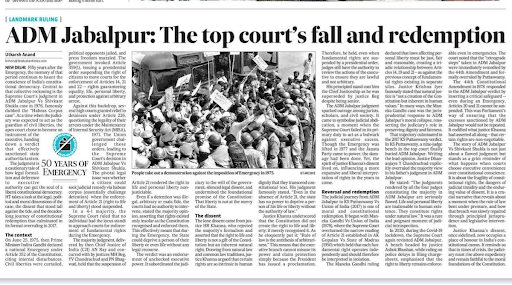




Copyright infringement not intended
Source: Twitter
The ADM Jabalpur ruling remains a vital cautionary story 50 years after the proclamation of emergency in 1975.
In a 4-1 majority decision, the Court concluded that if Article 21 was suspended during the Emergency, citizens had no right to seek legal protection for their lives or liberty. Only Justice H.R. Khanna dissented, claiming that rights such as liberty are inherent in human dignity and cannot be taken away even during an emergency.
It is largely regarded as a failure of judicial independence, as the Supreme Court sided with the president during a period of political persecution. It supported the suspension of fundamental rights and denied legal redress to thousands of people who were unlawfully jailed under laws such as the Maintenance of Internal Security Act (MISA).
According to Justice Khanna, liberty is an intrinsic natural right rather than a gift from the Constitution. He said that even if Article 21 was suspended, the state could not take life or liberty without legal permission. His opinion is today regarded as a seminal argument of constitutional morality.
|
Practice Question Q. Analyse how judicial introspection and subsequent course correction have contributed to reinforcing constitutional morality in India. |
© 2026 iasgyan. All right reserved